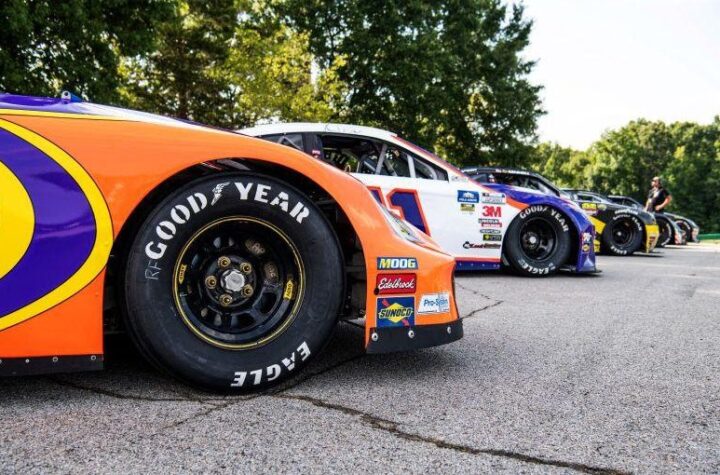
Chrysler Group President and CEO Tom LaSorda announced plans for the first diesel-powered, full-size SUV in the U.S. market — the 2007 Jeep(R) Grand Cherokee with a 3.0-liter common rail turbo diesel (CRD) engine. LaSorda made the announcement at the Detroit Regional Chamber’s Mackinac Policy Conference 2006 in Mackinac Island, Michigan.
“The Jeep Grand Cherokee diesel will offer class-leading torque, outstanding towing capacity (7,400 lbs.), and up to 30 percent improvement in fuel economy,” said LaSorda. “Plus, it will have a class-leading driving range of approximately 425 miles.”
The Grand Cherokee diesel news was part of a speech in which LaSorda challenged business leaders and state government officials to work together to boost competitiveness and fuel growth in Michigan, regardless of political party. Health care reform and the continued availability of new technology alternatives for greater fuel efficiency were all themes touched on in the speech.
Health Care Reform
Health care, according to LaSorda, is an inhibitor to competitiveness for the auto industry, for small businesses, for the state government and for the country as a whole. Chrysler Group alone expects to spend approximately $2.3 billion on health care this year for 360,000 workers, dependents, retirees and surviving spouses. The cost, said LaSorda, averages out to about $1,400 for each vehicle the Chrysler Group builds. In contrast, the estimated cost of health care for each vehicle that Japanese automakers build in the U.S. is around $400, creating a built-in cost advantage.
“At the national level, the runaway growth in prescription drug costs is a major driver of health care expenses,” stated LaSorda. “One contributing factor is that pharmaceutical companies are allowed loopholes to extend patents on their drugs, preventing more affordable generics from entering the market.”
LaSorda also pointed out the need to create standards for collecting and transmitting health care data, in order to help consumers access information while reducing errors and redundant testing. This challenge was posed at the federal level, but he encouraged Michigan to be ahead of the curve and enact state legislation that requires all medical service providers to be linked to a central IT system by the end of 2008, in order to save lives and save dollars.
Another state-level initiative in Massachusetts that LaSorda referred to as a “bold experiment” was an example of states using innovative means to overcome health care challenges.
Massachusetts spends approximately $1 billion annually to reimburse hospitals that provide emergency health care for the uninsured. A new law was passed there recently, mandating each individual to carry health insurance; just as Michigan mandates car insurance for drivers. This means the state and taxpayers won’t have to subsidize the expense of emergency care.
“Instead of waiting for the federal government to produce meaningful health care reform, let’s just do it in Michigan!” urged LaSorda.
Commitment to Alternative Fuels and Technology
The 2007 Jeep Grand Cherokee CRD continues Chrysler Group’s commitment to alternative fuels and technology. The vehicle will be manufactured at the Jefferson North (Detroit, Mich.) Assembly Plant. Every Grand Cherokee CRD that leaves the plant will be fueled with B5 — a renewable fuel with a 5 percent biodiesel mix derived from locally grown soy beans.
The new 3.0-liter CRD engine, built by Mercedes-Benz, produces 215 hp (160 kW) @ 3800 rpm and 376 lb.-ft. torque (510 N*m) @ 1600-2800 rpm and gets an estimated fuel economy of 19 miles city and 23 miles highway. The CRD engine will be available on the Jeep Grand Cherokee Laredo, Limited and Overland models. Pricing will be announced closer to availability.
LaSorda also confirmed that Chrysler Group has endorsed the use of B20 — 20 percent biodiesel — in the 2007 Dodge Ram for the company’s military, government and commercial fleet customers. “We believe this move will help accelerate the development and adoption of a national B20 specification, which will facilitate the growth of biodiesel.”
Gas-ethanol flex-fuel is another option worth developing and it has been getting its fair share of press, said LaSorda. Since 1998 the Chrysler Group has produced nearly 1.5 million vehicles that can run on E-85, a mix of 85 percent ethanol and 15 percent gasoline. In the 2007 model year, Chrysler Group will produce flex-fuel versions of the Jeep Grand Cherokee and Jeep Commander, as well as the Dodge Dakota.
The company plans to sell more than 250,000 flex-fuel vehicles in 2007 and nearly a half-million in 2008, committing about 25 percent of total Chrysler Group production to be E-85 capable. But the lack of fuel infrastructure for flex-fuel vehicles still exists today.
“There are only four ethanol refineries, and ten fueling stations in the entire state of Michigan,” LaSorda said. “Why can’t the state of Michigan require that 25 percent of a company’s fueling stations in Michigan must offer E-85? That would go a long way toward making this fuel available for flex-fuel vehicles already on the road as well as those to come in the next few years.”











More Stories
What You Should Know Before Filing a Car Accident Claim
Injured in a Car Accident in St. Louis? Here’s What to Do Next
Historic Sportscar Racing (HSR) and Goodyear Announce Multi-Year Partnership